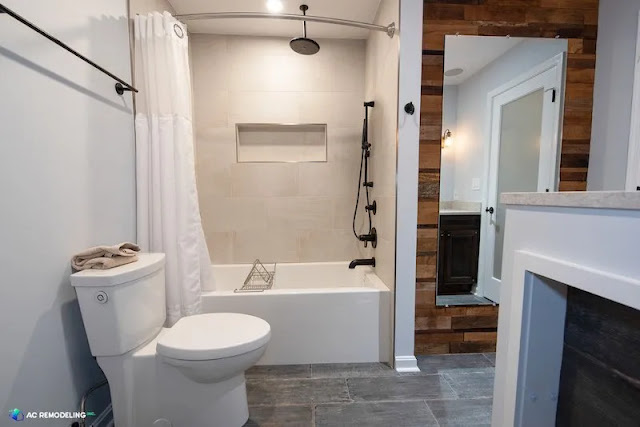Do You Need Permits to Remodel a Bathroom?
The need for permits to remodel a bathroom depends on the scope and nature of the project, as well as local building codes and regulations. In many cases, bathroom remodels may require permits, especially if the work involves structural changes, electrical or plumbing modifications, or alterations that affect the overall safety and integrity of the building. Here are some common scenarios where permits may be required:
Structural Changes:
If your bathroom remodel involves structural alterations, such as removing or adding walls, changing the location of doors or windows, or altering the layout, a permit may be necessary. Structural changes can impact the safety and stability of the building, and authorities typically require oversight to ensure compliance with local codes.
Plumbing Work:
Permits are often required for plumbing work, including the installation or relocation of plumbing fixtures, pipes, or drains. This is to ensure that the plumbing modifications meet safety and sanitation standards.
Electrical Work:
If your bathroom remodel involves electrical changes, such as installing new lighting fixtures, outlets, or making alterations to the electrical wiring, permits may be required. Electrical work needs to comply with safety regulations to prevent hazards.
Read also: https://renotitan.com/blog/do-you-need-permits-to-remodel-a-bathroom-a-comprehensive-guide/
Changing the Floor Plan:
Any significant changes to the floor plan, such as expanding the bathroom or reconfiguring the layout, may require permits. Authorities want to ensure that the changes adhere to zoning regulations and do not violate property lines.
Alterations to Load-Bearing Walls:
If your remodel includes modifications to load-bearing walls or the foundation of the building, permits are typically required. These changes directly impact the structural integrity of the property.
Installation of New Fixtures:
While replacing existing fixtures (like a toilet, sink, or bathtub) may not always require a permit, adding new fixtures or substantially altering the existing plumbing configuration may necessitate one.
It's important to note that permit requirements vary by location, and local building departments enforce specific regulations. Homeowners should check with their local building department or city planning office to determine the specific permitting requirements for their area.
Benefits of Obtaining Permits:
- Safety Assurance: Permits ensure that the work complies with safety codes and standards, reducing the risk of accidents or hazards.
- Property Value: Permitted improvements can positively impact the resale value of a home, as potential buyers may see them as professionally executed and up to code.
- Legal Compliance: Obtaining permits demonstrates compliance with local laws and regulations, avoiding potential fines or legal issues in the future.
While the process of obtaining permits may add some time and paperwork to your project, it contributes to a safer and more regulated construction process, ensuring that your bathroom remodel meets the necessary standards and regulations.

Комментарии
Отправить комментарий